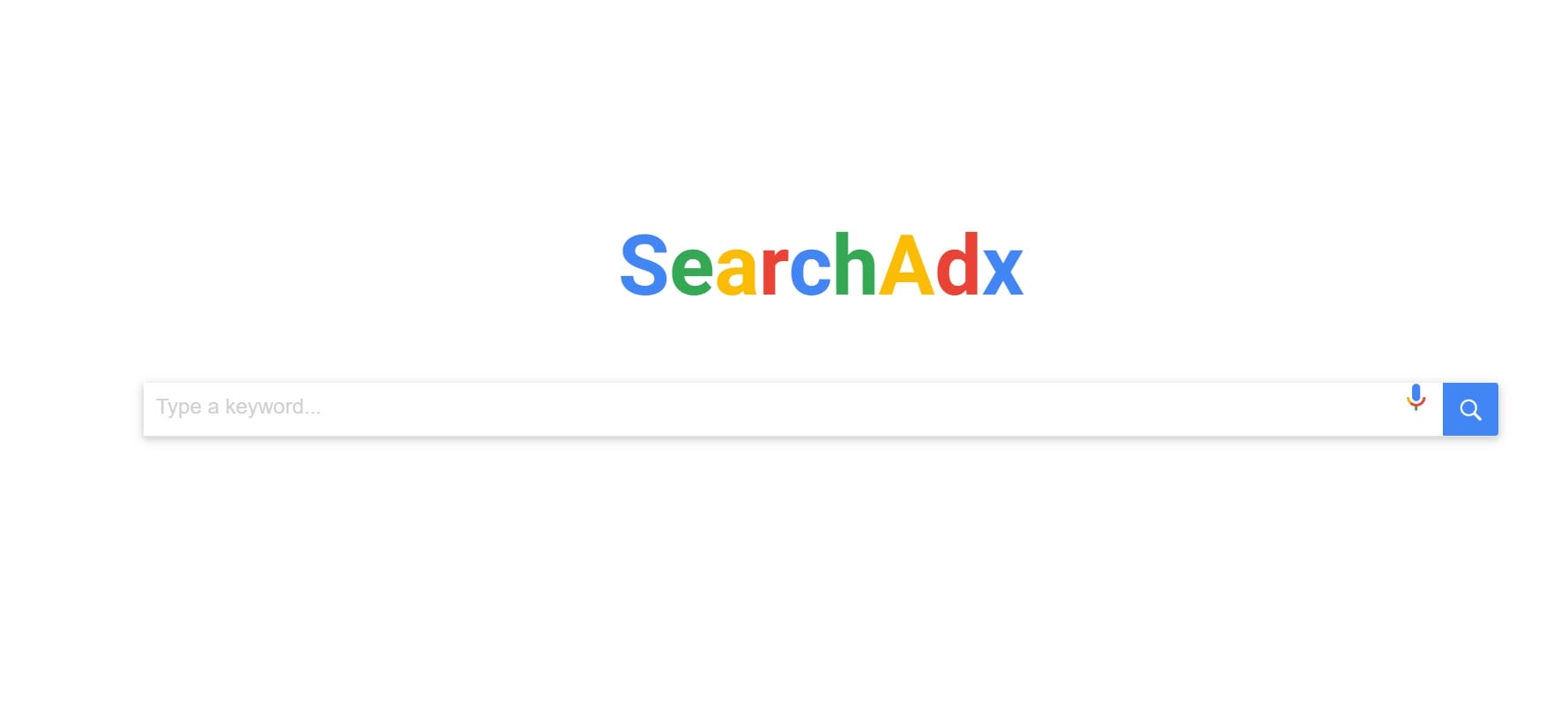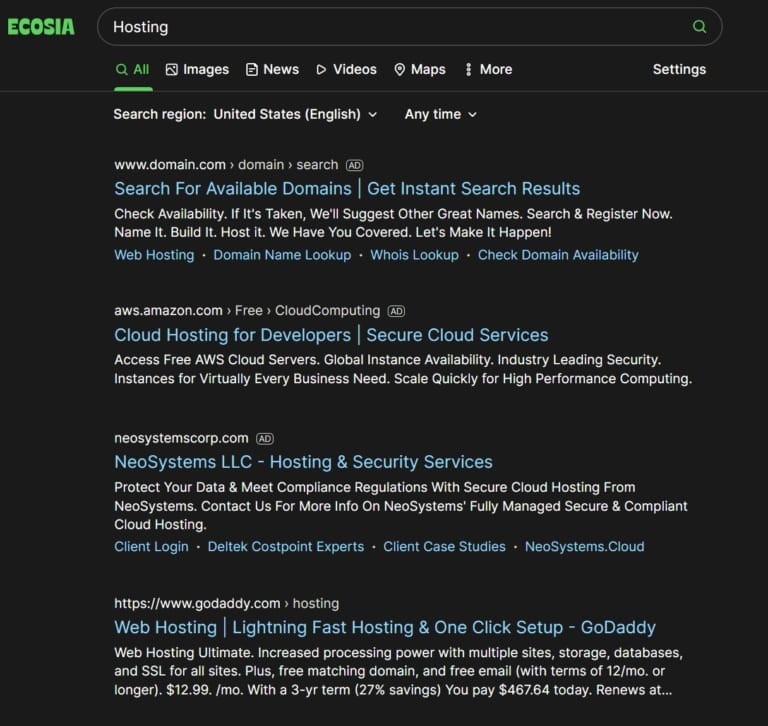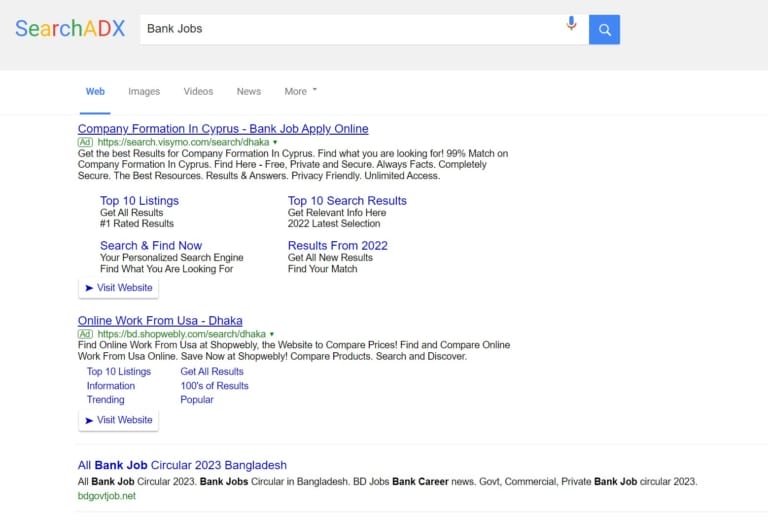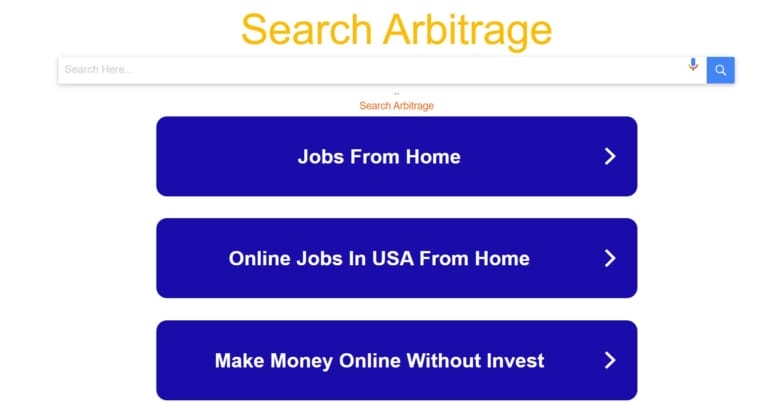
Search Feed Monetization is a multifaceted strategy that leverages the power of search engines to generate revenue. It’s a concept that has gained significant traction in the digital marketing landscape, especially among publishers, browser extension developers, and media buyers. This revenue-generating model is not just about placing ads on a website or within an app; it’s about creating a seamless user experience that naturally integrates monetization efforts into the search functionalities that people use every day.
What is Search Feed Monetization?
The concept of search monetization can be traced back to the early days of the Internet when search engines like Yahoo and Google began to dominate the digital landscape. As these platforms grew, they started offering advertising opportunities, which eventually led to more sophisticated monetization models. Today, search monetization is not confined to search engines alone; it has permeated various digital platforms, including mobile apps, browser extensions, and even some software applications.
The Mechanism Behind It
Search monetization works by altering or influencing the search behavior of users in a way that generates revenue. This can be done through several methods:
- Search Ads: These are the most straightforward form of search monetization. Whenever a user performs a search, ads relevant to the search query are displayed, and the publisher earns revenue for clicks or impressions.
- Affiliate Links: In this model, search queries are used to generate affiliate links, which lead to products or services. The publisher earns a commission for every sale made through these links.
- Search Feed Monetization: This involves changing the default search engine settings in a browser or app to a particular search engine that shares revenue for the search activity generated.
- In-App Search Monetization: For mobile apps, in-app search can also be monetized by displaying ads or sponsored content within the search results.
Why It Matters?
Search monetization is not just a revenue-generating tactic; it’s a strategy that can significantly impact user engagement and retention. By integrating monetization naturally into the user experience, publishers can create a more sustainable revenue model without disrupting the user journey. This is particularly important in an age where ad blockers are prevalent, and users are increasingly sensitive to intrusive advertising.
The Ethical Considerations:
While search monetization offers numerous opportunities, it also comes with its set of ethical considerations. Transparency is crucial. Users should be made aware if their search settings are being altered or if affiliate links are being used. Compliance with legal regulations, such as GDPR in Europe, is also essential to build trust and avoid legal repercussions.
The Future of Search Monetization:
As machine learning and artificial intelligence continue to evolve, search monetization is likely to become even more sophisticated. Personalization will play a significant role, allowing for more targeted and relevant monetization efforts, thereby increasing the potential for higher revenue.
In summary, search monetization is a dynamic and evolving field that offers a plethora of opportunities for revenue generation while enhancing user experience. However, like any powerful tool, it comes with responsibilities and should be implemented thoughtfully and ethically.
How Search Feed Monetization Works:
Search Monetization is a specialized form of search monetization that focuses on leveraging search queries to generate revenue. This strategy is particularly popular among browser extension developers, software companies, and digital publishers. Below, we delve into the intricate workings of search feed monetization, breaking down its components and mechanisms.
The Basic Framework
At its core, search feed monetization involves redirecting a user’s search queries through a monetized search feed. This feed is usually provided by a third-party search engine like Bing or Yahoo, which shares a portion of the advertising revenue generated from these searches with the publisher or developer.
Types of Search Feeds:
- SearchXML Feed: This type of feed allows for a high level of customization, including the ability to brand the search results page. However, it generally yields lower revenue compared to other types of feeds.
- Hosted Search: This is a more straightforward approach where the user is redirected to a search results page hosted by the search engine itself (e.g., Bing or Yahoo). This type usually generates higher revenue but offers less customization.
Integration Points
Search feed monetization can be integrated into various parts of a digital product:
- Browser Extensions: The search feed can be set as the default search engine for new tabs or even the address bar.
- Mobile Apps: In-app search functionalities can be monetized using search feeds.
- Websites: Custom search bars on websites can also be monetized through this method.
The User Journey
- Initial Setup: During the installation of a browser extension or app, the user may be prompted to change their default search engine, or it may be changed automatically (with user consent).
- Search Query: When the user initiates a search, the query is redirected through the monetized search feed.
- Ad Display: The search results page will display ads alongside organic results.
- User Interaction: If the user clicks on any of the ads, revenue is generated and shared between the search engine and the publisher.
Revenue Models
- Pay-Per-Click (PPC): Revenue is generated each time a user clicks on an ad in the search results.
- Revenue Share: A percentage of the total ad revenue generated from the search activity is shared with the publisher.
Metrics to Monitor
- Total Searches: The aggregate number of searches performed through the monetized feed.
- Monetized Searches: The number of searches that led to ad clicks.
- Revenue Per Click (RPC): The average revenue generated per ad click.
- Revenue Per Thousand Searches (RPM): The revenue generated per 1000 searches, is a key metric for gauging overall performance.
Compliance and Transparency
It’s crucial to adhere to legal requirements and be transparent with users about the changes to their search settings. Failure to do so can result in penalties and loss of user trust.
In summary, search feed monetization is a complex but highly effective strategy for generating revenue through search activity. It involves multiple components, from the type of search feed used to the points of integration and the metrics that need to be monitored. When implemented correctly and ethically, it can serve as a significant revenue stream for digital products.
What Is Search Arbitrage? The Hidden Engine of Ad Earnings
Maximizing Revenue with Native to Search Arbitrage: A Comprehensive Guide





